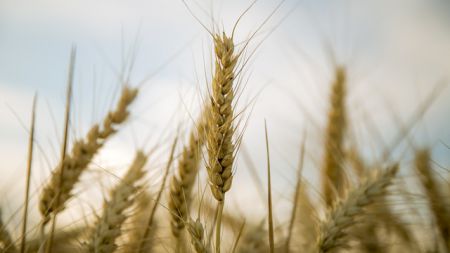
Wheat is the leading source of vegetable protein in human food, having higher protein content than other major cereals like maize (corn) or rice. However the protein present in wheat can lead to abnormal reaction to your immune system causing wheat allergy. If a person whose immune system is weak or if a person is allergic to wheat, consumes wheat then the body will release antibodies, which in turn causes several symptoms. Wheat allergy is avoidable if a person with wheat allergy avoids eating wheat and switch to other food products like rice, cereals, fruits, vegetables etc.
Causes of wheat allergy
Proteins present in wheat are responsible for causing allergic reactions to your body. These proteins are not only present in wheat but also in other wheat products like bread, pasta, cereals etc. Apart from these food items wheat proteins are also found in ice cream, cosmetics, ketchup.
Following are the products that can cause wheat allergy.
- Cakes ,cookies
- Muffins
- Bread, pasta
- Dairy products
- Soy sauce
- Semolina
- Beer
- Breakfast cereals
- Sauces and condiments
- Beverages
- Milk products
- Baked food products
- Desserts like ice cream, pan cake, cheese cakes
Wheat Allergy Symptoms
A person with wheat allergy can suffer from one or more of the following symptoms. These symptoms can be caused immediately after consuming wheat and its products or it may take few hours for the allergic reaction to occur.
- Skin rash
- Hives
- Diarrhoea
- Head ache
- Itchy eyes
- Watery eyes
- Redness of skin
- Nasal congestion
- Itching in mouth
- Irritation in throat
- Cramps
- Vomiting
- Anaphylaxis
Prevention from wheat allergy
Wheat allergy is avoidable provided you follow a strict wheat free diet. There are so many options to choose from. Like Fresh fruits, vegetables, beans, and unpackaged meats are all healthy wheat-free foods. Any packaged food product marked “gluten-free” is, by definition, free of wheat. You can also eat products made from other grains, such as: corn, rice, quinoa, barley, oats and rye.
- Check the label to food product before buying. Make sure that the food items you purchase are wheat free. Read the ingredients list thoroughly before buying it.
- Non food products like cosmetics and bath products also contain wheat. Always check it before buying.
Coeliac disease
It is a disease in which the small intestine is hypersensitive to gluten protein, leading to difficulty in digesting food. These glutens are available in wheat, rye and barley. People with coeliac disease have antibodies which cause an immune reaction resulting in damage of small intestines.
Symptoms to coeliac disease are as follows
- Weight loss in adults
- Slow weight gain in children
- Stomach pain
- Abdominal cramps
- Dermatitis-severe type of skin rash
- Low energy and tiredness
- Joint pain
- Diarrhoea
- Constipation
- Infertility and miscarriages
- Mouth ulcers
Wheat allergy symptoms may vary from person to person, however it is always advisable to consult a doctor if you suffer from any of the above symptoms.

